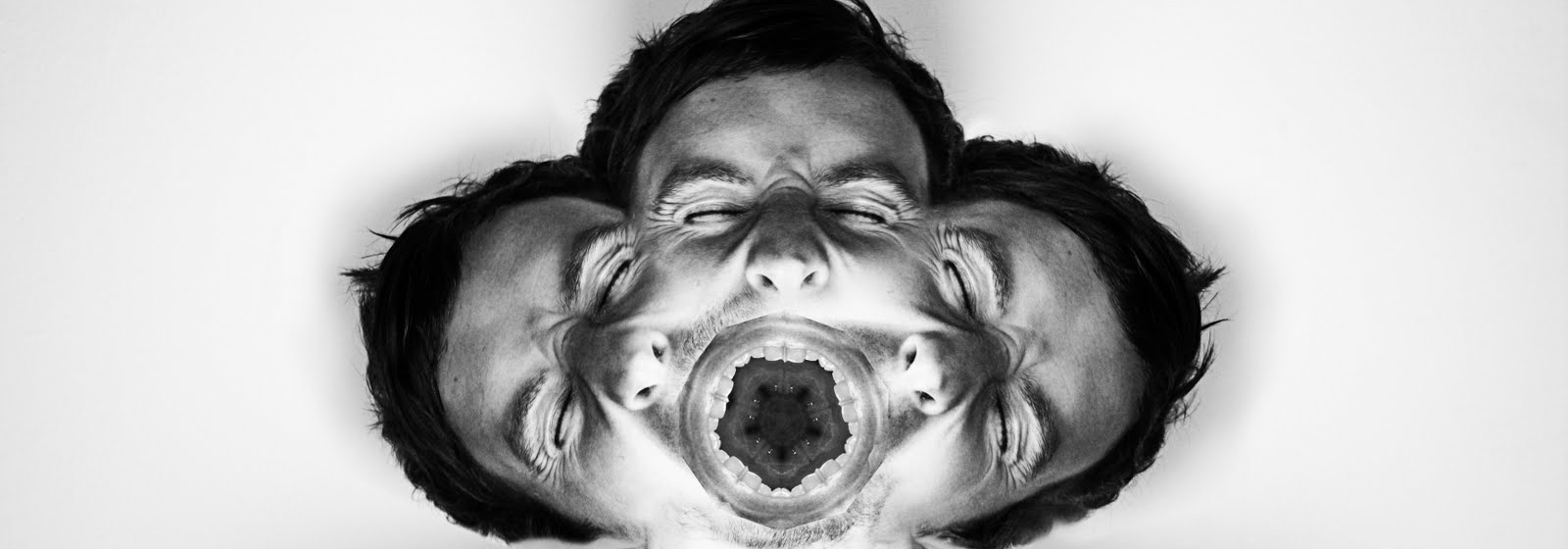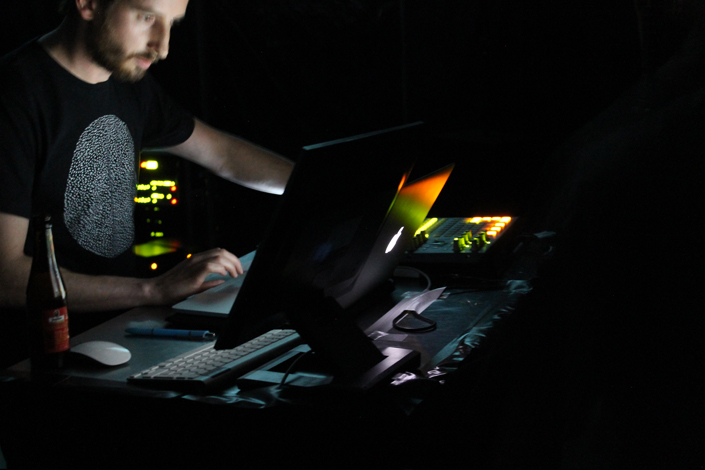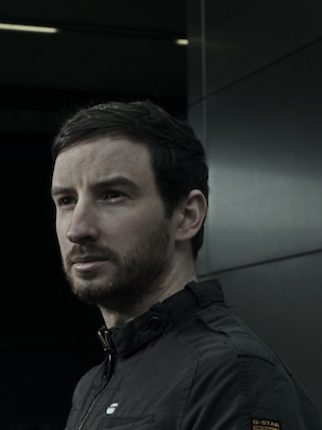The 4D World of Techno Futurist Max Cooper

Max Cooper is a name that has been coming up in the underground electronic scene, thanks to his growing catalog of abstract yet highly relatable music that defies pretty much any genre category. To call his music “beautiful” would be a misdirection, but there is undoubtedly a beauty in the way he combines abrasive sounds and complicated production techniques with delicate soundscapes and touching melodies.

This universal appeal has allowed the producer, who holds a Ph.D. in computational biology, to captivate a variety of audiences. His recent US tour consisted of three different festivals, from the urban thump of Detroit’s Movement and Mutek’s intellectual scene to the Burner vibes of Lightning in a Bottle. We spoke with Cooper days before his latest trek to find out what threads he uses to tie up so many diverse fans.
You’re doing three festivals on your US tour—Movement, Mutek and Lighting in a Bottle—all of which are pretty distinct. I’m guessing you haven’t been to any of them?
Nope, I haven’t been to any of them.
Do you feel the need to investigate beforehand? Or do you like to just show up?
I do have a sort of idea of about what they’ll be like—particularly Mutek and Movement. I have a fair idea what I might do when I get there. Lightning in a Bottle, I don’t have so much of an idea, but at the same time, I’ve played in San Francisco quite a lot. I have an idea of what to expect, but I always turn up and just see what the vibe is and see what people are into. I just try and play what’s right at the time. I’ve got access to maybe 200 tracks I can play in any order, so I can do different types of sets.
It’s one thing to be prolific, but it’s another thing to have a catalog that’s flexible enough.
I struggle with the opposite. I struggle to keep my catalog together enough. I think if it were up to me, if I had ignored all the advice I’d been given, I’d be making all sorts of crazy different music. The problem is that it would be so varied that people would struggle to book me. It just becomes too inconsistent if I go too far off the rails.
How do you keep it together?
Even if I’m making an ambient track, or sort of a banging techno track, I’ll use similar techniques, and that gives the music a certain consistency. Aside from that, there are themes that run through my music. There are details, large contrasts, usually melodies, certain types of chords, and chord progressions. I just don’t like sticking to genre themes. I’m a bit anti-genre.
I feel like there is that emotion. Is that the thread?
That is definitely one of my main threads, but it’s not as simple. Some of my tracks might be sort of abrasive or aggressive. It doesn’t have to be nice emotions. My album called Human was my attempt to take all of these human ideas and human emotions and try to represent them across the board. There is a track called “Impact” that’s just loads of abrasive smashing noises. For me, that carries emotion—but not what people would typically refer to.
The word “emotion” in music just becomes shorthand for “pretty.”
Yeah, exactly. So the point I’m getting at, that “emotions” is the right word if you define it in a way that means it’s not just pretty.
Was it specifically emotion, in the human psychological sense of the word, when you were working on the album?
There is a combination. Every track I do has an emotional element, but the album was also about more abstract concepts, not just the purely emotional side—concepts like on “Impacts.” There are these impacts in life, and they are sort of bad; they pound you into the ground. You gotta pick yourself back up. Most of the concepts aren’t emotional. There are a couple—“Seething,” for example—that’s really an intense one. That’s really a pure emotional track. Whereas most of them, like “Woven Ancestry” or “Automaton,” they’re slightly more objective terms. I’ve used them to help my creative process. But music is still emotional in the end.
How important is it that these concepts get processed by your listener?
Not at all. I believe that if you go and see some paintings, you shouldn’t need to know what the concept is to enjoy that. You should be able to listen to a piece of music and like it or not like it and not know anything about it.
Can you think of an example of art that you experienced without being aware of the concept? And then when you became of aware of the concept and thought, “Oh, that’s what that is!” and it changed the experience?
I love Jackson Pollack, and I originally enjoyed his paintings when I didn’t really know what they were about. Then I found out that he was really interested in movement and action, his paintings were representing what’s happening and flow of time. Once I had that knowledge, I start picking things out. At the same time, I don’t think that necessarily made me enjoy it more. I think sometimes it can work the other way—knowing the concept can reduce your enjoyment. It’s a tricky one.
Do you consider yourself to be a visual creative when you’re working on music?
My visual side is my preferred side, and that’s why I’ve done so many music videos. I love working with video artists. The other thing that ties the visual side to my music is psychoacoustics. You can put cues in that make your brain think things are really wide. There are cues that you can put in that tell your brain things about the environment. I’ve gotten really into that—creating a visual space with my music. I want my track to sound very wide and spatial and immersive, which is why I use a lot of constant chords and constant notes, to give this immersion.
That has got to be a real challenge because of how people listen to music on shitty headphones and computer speakers.
If someone tells me that they listen to one of my tracks on their iPhone, I get pretty frustrated. I just know that so much information is lost. It can’t possibly have the effect that I wanted it to. But people are listening in their own way, and if they enjoy it, they enjoy it. You can’t say otherwise.
You’ve done stuff on a 4D speaker system in Amsterdam. Are you thinking musically when you’re working on stuff for these kinds of systems, or more of the spatial experience?
It’s an interesting point. The first show I did was adapting existing music for the system. So I took a load of my tracks that I’d made for normal listening, and I tried to figure out: If each track was a physical entity that people could walk around inside, what would it be? For example, “Woven Ancestry” has all these pluck noises that all play different rhythms. I thought it should be like rain falling, so I made all these falling drops through the space. It worked nicely.
Since then I thought, “How about I approach it the other way around?” I’m just going to make stuff that’s purely spatial, and I’m not going to worry about the musical element. So I went back, and I did these audio sculptures that were basically spatial audio experiences minus the musical content. Some of them still have musical content, but primarily they’re designed to give a different spatial effect. So I’ve got both things now.
All this stuff that you’re into—space and sound, visual—makes me wonder if you are the kind of guy who sits in a sensory deprivation tank or something? Do you indulge those sorts of experiences outside of your work? Or do you eat a bunch of mushrooms or something?
I’m obsessed with illusions. I love 3D, even all the crappy 3D films. I’ve never done the sensory deprivation tank, but I love being in nature, going to mountains or the countryside. It’s the visual displays you get in nature that are the most beautiful, actually.
As a kid, were you connecting with that stuff?
I grew up just outside Belfast. The city is not beautiful, but the natural environment is really beautiful. You’re always just 10 minutes away from unspoiled countryside and lots of coastline. That was a big influence on me. The other thing is that I’m always a big daydreamer. When I was a kid, they thought I was deaf. I had to get my hearing tested because I would be in a class daydreaming, and the teacher would ask me a question, and I wouldn’t even hear them.
I imagine that makes it very difficult to be an academic, which you did for quite a while.
That’s actually all you do as an academic: daydream about some system. Luckily, I wasn’t so lost in the dream world that I couldn’t apply myself.
How does clubbing play into all of this? Is there another immersion in the clubbing experience?
The clubbing thing stems from my love of music and the fact that I would go to a club and get really immersed in it. It’s all about sort of forgetting who you are and what you’re doing—an escaping of the shackles of everyday life.
Follow Max Cooper on Facebook | Twiiter


